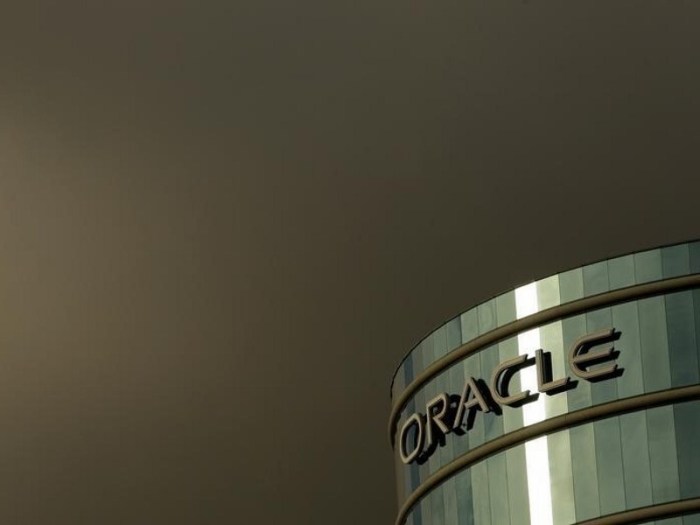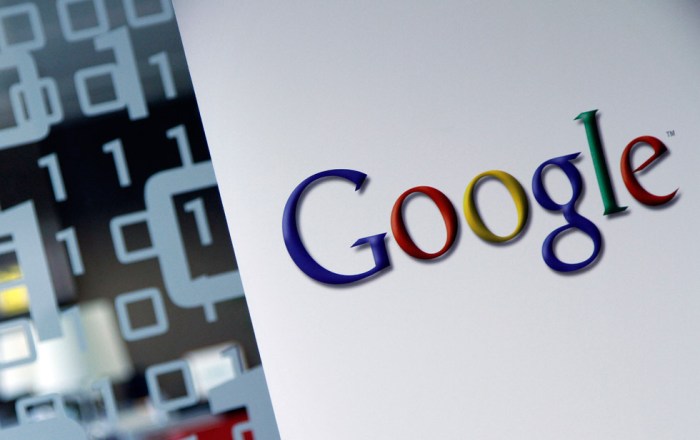Oracle to google pay up 9 3 billion – Oracle Demands $9.3 Billion from Google in Java API Lawsuit, a legal battle that has shaken the foundations of the Android ecosystem and the open-source software world. The case revolves around Oracle’s claim that Google’s use of Java Application Programming Interfaces (APIs) in Android constitutes copyright infringement. Oracle argues that Google’s use of Java APIs without proper licensing violated their intellectual property rights, demanding significant financial compensation. This lawsuit has sparked a debate about the boundaries of intellectual property law, fair use, and the future of open-source software development.
The lawsuit has far-reaching implications for the Android ecosystem, potentially impacting the development and distribution of Android apps. It has also raised concerns about the future of open-source software and the potential for increased legal challenges in the software industry. This case has garnered significant attention from developers, users, and industry experts alike, highlighting the complex interplay between intellectual property rights, innovation, and the evolving landscape of software development.
The Oracle Lawsuit: Oracle To Google Pay Up 9 3 Billion
The Oracle lawsuit against Google, which spanned over a decade, was a landmark legal battle that centered on the use of Java Application Programming Interfaces (APIs) in Google’s Android operating system. Oracle, the owner of Java, alleged that Google’s use of Java APIs in Android constituted copyright infringement, while Google argued that its use was fair use and that the APIs were not protected by copyright.
Oracle’s Arguments, Oracle to google pay up 9 3 billion
Oracle’s lawsuit against Google centered around the use of Java APIs in Android. Oracle claimed that Google’s use of Java APIs violated Oracle’s copyright and constituted unfair competition. Specifically, Oracle argued that Google’s implementation of Java APIs in Android infringed on Oracle’s intellectual property rights, claiming that Google copied the structure, sequence, and organization of Java APIs. Oracle further asserted that Google’s use of Java APIs was not a fair use, as it caused substantial harm to Oracle’s market share and reputation.
Google’s Counterarguments
Google, in its defense, argued that its use of Java APIs in Android was a fair use, as it was necessary to create a compatible and interoperable mobile operating system. Google also contended that the Java APIs were not copyrightable, as they were functional elements essential for the operation of the Android platform. Google’s defense strategy involved arguing that the Java APIs were not protectable under copyright law, and that its use of them was essential for compatibility and interoperability.
The Legal Battle
The legal battle between Oracle and Google went through multiple rounds of litigation, including trials and appeals. The case reached the Supreme Court in 2014, which ruled that Java APIs were copyrightable, but remanded the case back to the lower court to determine whether Google’s use of Java APIs was a fair use. In 2016, the lower court found that Google’s use of Java APIs was a fair use, concluding that the use was transformative and that it did not harm Oracle’s market. This decision was ultimately upheld by the appellate court in 2018.
The Impact on the Android Ecosystem

Oracle’s lawsuit against Google, alleging infringement of Java API copyrights, has significant implications for the Android ecosystem. A potential win for Oracle could result in substantial financial repercussions for Google and potentially alter the landscape of Android development.
Financial Implications for Google
A significant financial impact is expected if Oracle wins the lawsuit. Oracle is seeking billions of dollars in damages from Google, which could significantly impact Google’s bottom line. This financial burden could lead to reduced investment in Android development, potentially impacting the platform’s future features and functionalities.
Potential Changes to Android’s Development
If Oracle prevails, Google might be forced to make significant changes to Android’s core codebase, potentially affecting the way developers build apps for the platform. These changes could include:
* Replacing Java APIs with alternative technologies: Google might need to adopt alternative programming languages or APIs to avoid future copyright infringement claims. This could necessitate significant rewrites for existing apps and potentially create compatibility issues.
* Increased licensing fees: Oracle could demand licensing fees for the use of Java APIs, potentially increasing the cost of developing Android apps. This could impact small and independent developers, making it more challenging for them to participate in the Android ecosystem.
* Reduced innovation: The legal uncertainty surrounding Java APIs could discourage developers from innovating and experimenting with new features, potentially slowing down the pace of Android development.
Perspectives of Android Developers and Users
The lawsuit has generated mixed reactions from Android developers and users:
* Developers: Many developers express concern about the potential impact on their development workflows and the cost of app development. They fear that changes to Android’s codebase could lead to increased complexity and fragmentation, making it more difficult to build and maintain apps across different Android devices.
* Users: Users are concerned about the potential impact on the availability and quality of Android apps. They fear that changes to Android’s development process could lead to fewer apps being available, as well as a decline in the quality and functionality of existing apps.
Impact on Competition in the Mobile Operating System Market
The outcome of the lawsuit could significantly impact the competitive landscape of the mobile operating system market:
* Apple’s iOS: If Oracle wins, it could give Apple’s iOS a competitive advantage, as developers might be less inclined to invest in the Android platform due to the uncertainties and potential costs associated with Java API usage.
* Other operating systems: The lawsuit could also encourage the development and adoption of alternative mobile operating systems, such as Linux-based platforms, as developers seek alternatives to Android.
* Open-source development: The lawsuit has raised concerns about the future of open-source software development, as it highlights the potential legal risks associated with using copyrighted code. This could discourage developers from contributing to open-source projects, potentially slowing down the pace of innovation.
The Evolution of Intellectual Property Law

The Oracle v. Google lawsuit, spanning over a decade, has significantly impacted the legal landscape surrounding software and intellectual property rights. The case centered on the use of Java Application Programming Interfaces (APIs) in Android, raising fundamental questions about fair use, copyright infringement, and the boundaries of intellectual property protection in the digital age.
The Arguments Presented
The arguments presented by both sides in the Oracle v. Google case highlight the complexities of intellectual property law in the context of software development.
- Oracle argued that Google’s use of Java APIs in Android constituted copyright infringement. They asserted that the APIs were original, creative works protected by copyright and that Google had not obtained permission to use them. They claimed that Google’s copying of the APIs was not transformative enough to qualify as fair use and that it caused significant harm to Oracle’s market position.
- Google countered by arguing that the Java APIs were not original enough to warrant copyright protection and that their use in Android was a necessary and transformative adaptation for a new platform. They argued that the APIs were functional elements that could not be protected by copyright and that their use was essential for compatibility and interoperability within the Android ecosystem.
The Supreme Court’s Decision and Its Implications
The Supreme Court’s decision in the Oracle v. Google case, while favoring Google, has significant implications for the future of intellectual property law in the software industry. The Court held that the Java APIs were not original enough to be protected by copyright and that Google’s use of them in Android was a fair use.
- This decision affirmed the importance of fair use in the context of software development, allowing developers to build upon existing technologies without being overly restricted by copyright concerns. It acknowledged that the software industry relies on interoperability and compatibility, which often requires borrowing elements from existing systems.
- The decision has also raised concerns about the potential for a “chilling effect” on innovation. Some argue that the ruling may make it more difficult for software developers to protect their original creations, potentially discouraging future innovation. Others argue that the decision provides much-needed clarity and stability for the software industry, ensuring that developers can build upon existing technologies without fear of litigation.
The Future of Open Source Software
The Oracle vs. Google lawsuit, with its hefty $9.3 billion price tag, has sent shockwaves through the tech world. While the immediate focus has been on the legal battle and its implications for Android, the case has also sparked a broader conversation about the future of open-source software. The lawsuit’s outcome could significantly impact how open-source software is developed, shared, and used.
Licensing Agreements and Copyright Practices
The lawsuit highlights the complexities surrounding copyright and licensing in the context of open-source software. While the GPL license is generally understood to grant users the freedom to modify and distribute software, the Oracle case raises questions about the extent of these freedoms when it comes to commercial use and derivative works. The lawsuit could lead to a reevaluation of licensing agreements, with developers potentially seeking more restrictive terms to safeguard their intellectual property. This could create a more fragmented open-source landscape, with different licenses governing various software projects.
- Increased scrutiny of open-source licenses: Developers may become more cautious about the specific terms of open-source licenses, particularly when using software in commercial projects. They might opt for licenses that offer greater control over their intellectual property, potentially leading to a proliferation of different licenses.
- More restrictive licensing terms: Some developers might choose to adopt more restrictive licenses, limiting the ways in which their software can be used and modified. This could hinder the collaborative spirit of open-source development and make it more challenging for developers to build upon existing projects.
- Increased litigation: The Oracle vs. Google lawsuit may encourage other companies to assert their intellectual property rights in the open-source space, potentially leading to an increase in lawsuits and legal disputes. This could create a climate of uncertainty and discourage developers from contributing to open-source projects.
The Oracle vs. Google lawsuit serves as a crucial reminder of the evolving nature of intellectual property law and its impact on the software industry. The case underscores the need for a clear understanding of fair use and copyright infringement in the context of open-source software development. The outcome of this legal battle will have lasting implications for the Android ecosystem, the open-source community, and the future of software innovation.
The Oracle to Google settlement for $9.3 billion is a major development in the tech world, highlighting the ongoing battles over intellectual property. Meanwhile, a separate story has emerged involving Samsung, where leaked apps for the Galaxy S7 Active have been reported , raising concerns about security and data privacy. Back to the Oracle case, the settlement demonstrates the high stakes involved in software licensing and the importance of protecting intellectual property rights.